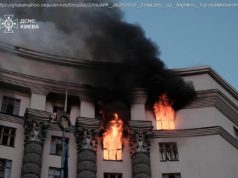Stan Mikita played all of his 22 years in the NHL with the Blackhawks, winning a title in 1961.
CHICAGO — When Stan Mikita got back together with the Chicago Blackhawks, it was clear how much the reconciliation meant to the Hall of Fame forward.
He became a team ambassador, and then got a bronze statue outside the United Center. He was a regular at home games, drawing loud cheers when he was shown on the videoboard, often with former teammate Bobby Hull right beside him.
“I was proud to wear the Indianhead uniform for 22 years,” Mikita said when he was honored before a 2008 home game.
Made it look good, too.
The Blackhawks lost one of the most revered figures in franchise history when Mikita died Tuesday. The former captain, who helped Chicago to the 1961 Stanley Cup title, was 78.
Mikita’s family announced his death in a statement released by the team. No further details were provided, but he had been in poor health after being diagnosed with Lewy body dementia – a progressive disease that causes problems with thinking, movement, behavior and mood.
“He was surrounded by his loving family whom he fiercely loved,” the family said in the statement. “Details of planned services will be released when they become available. We respectfully ask for privacy at this time.”
Mikita spent his entire career with Chicago, beginning with his NHL debut in 1959 and running through his retirement after playing 17 games in the 1979-80 season. He is the Blackhawks’ career leader for assists (926), points (1,467) and games played (1,394), and is second to Hull with 541 goals.
Mikita remains the only NHL player in history to win the Art Ross (scoring champion), Hart (MVP) and Lady Byng (sportsmanship) trophies in the same season, and he accomplished the feat in consecutive years in 1967 and 1968. He became the first player to have his jersey retired by the Blackhawks in 1980, and was inducted into the hockey Hall of Fame three years later.
“Stan Mikita will be always remembered as a champion, an innovator and a master of the game,” team president John McDonough said. “He embodied the Chicago Blackhawks.”
NHL Commissioner Gary Bettman called Mikita “one of the greatest players in NHL history and a Chicago icon.”
Mikita’s relationship with the Blackhawks deteriorated over time, but the franchise reached out to him after longtime owner William Wirtz died in 2007 and his son, Rocky, took over. The return of Mikita and Hull was a key moment in the transformation of the Blackhawks from one of the NHL’s worst franchises to its current place among the best run organizations in sports.
The 5-foot-9 Mikita, who was born in Czechoslavakia and moved to Canada in 1948, was just 18 when he joined a mediocre Blackhawks franchise in 1959.
Mikita showed steady improvement at the start of his career, helping Chicago develop into one of the most feared teams.
Send questions/comments to the editors.






